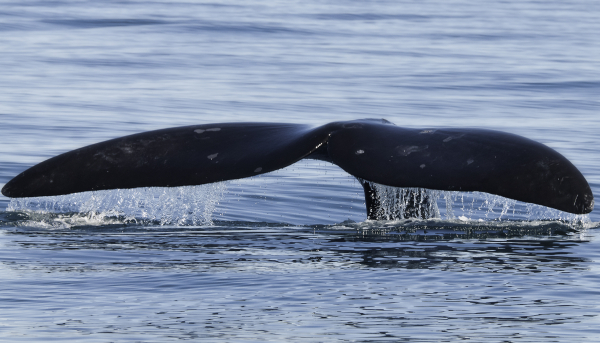In April, the IWC is holding a workshop on the Socio-Economic Values of the Contribution of Cetaceans to Ecosystem Functioning.
The IWC has long recognised the importance of whales in the functioning of ecosystems. The Commission adopted Resolutions directing work on the issue in 2016 and 2018, and the Conservation and Scientific Committees have both focused efforts on different aspects of this topic.
In recent years, a range of global organisations have contributed to a rapid increase in knowledge and interest in the role played by whales in ecosystems. In 2019, the International Monetary Fund published a report exploring the economic value of whales in ecosystem functioning. The report estimated that each great whale sequesters approximately 33 tons of carbon, equivalent to 30,000 trees, and suggested an average monetary value of $2M for each animal. In 2022, the Sixth Assessment Report of the International Panel on Climate Change proposed whales as potential blue carbon ecosystems.
|
How do whales contribute to reducing carbon in the atmosphere? Firstly, just as trees capture carbon in the terrestrial ecosystem, whales capture carbon in the ocean ecosystem. A large whale can store a vast amount of carbon over the course of a life that may last 100+ years. When the animal dies it sinks to the sea-bed, ‘locking-in’ this large carbon store for centuries.
Whale excrement performs a second important service to the ecosystem. It acts as a fertiliser for phytoplankton, a microscopic creature that lives at the ocean’s surface and is very effective at both capturing carbon and releasing oxygen. The whale’s waste contains the iron and nitrogen that phytoplankton need to grow. Whales feed in deep water and come to the surface to breathe, bringing these valuable minerals up to the phytoplankton in a process known as ‘the whale pump.’
|
The April workshop is led by the Conservation Committee of the IWC. Guest speakers and participants include social scientists and economists as well as specialists in marine ecology and cetacean biology. It will review existing economic and social valuation techniques for the ecosystem services provided by cetaceans, and identify potential new methods for assessing their contributions. It will also identify knowledge gaps and develop a prioritised list of recommendations to address these knowledge gaps and advance research, as well as suggesting potential approaches for incorporating the contribution of cetaceans to marine ecosystem function into the decision-making processes of the IWC and other relevant organisations.
The workshop will be held virtually over three days and its conclusions will be published and reported to the Commission at its next meeting, scheduled for October. The sessions will be held on 5, 6 and 11 April at 1500-1800 UK Time (GMT+1).
The workshop will be screened live on the IWC YouTube channel at https://www.youtube.com/c/iwcint

